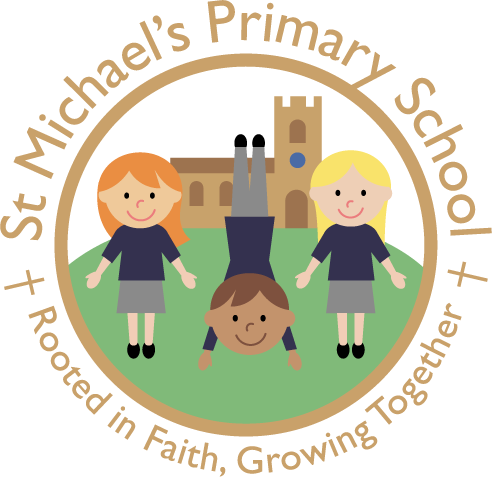RE
RE at St Michael’s CE Primary School
Intent
At St Michael’s C of E Primary School, Religious Education (RE) is central to our distinctive Christian vision and deeply embedded within the life of our school. We aim to provide a rich and rigorous RE curriculum that inspires curiosity, respect and deep thinking. Guided by the Manchester Diocese Syllabus, our intent is:
-
To ensure pupils develop a secure knowledge and understanding of Christianity as a living and diverse faith, while also engaging with a range of other world religions and world views.
-
To give children the opportunity to explore theological concepts, ethical thinking, and philosophical questions, encouraging them to reflect on their own beliefs and values.
-
To nurture spiritual, moral, social and cultural development, supporting children to live well together and show respect for those of all faiths and none.
-
To promote religious literacy, enabling pupils to articulate beliefs, ask meaningful questions, and understand the significance of faith in the lives of others.
-
To prepare children to contribute positively to society, with empathy, understanding, and a strong sense of identity rooted in Christian values.
Implementation
RE is taught in line with the Manchester Diocese Syllabus, which provides a balanced and progressive curriculum rooted in the Church of England’s approach to religious education. At St Michael’s, we implement the curriculum in the following ways:
-
Christianity is taught in every year group using core units that allow children to explore the Bible, Christian beliefs and practices, and how faith is lived out in the world.
-
Pupils also study a range of world religions and world views, including Islam, Judaism, Hinduism, and Humanism, with a strong emphasis on understanding similarities and differences.
-
RE is taught through an enquiry-based approach using big questions that encourage deeper thinking and reflection.
-
We use a three-strand model in each unit:
-
Theology – thinking through believing (What do people believe?)
-
Philosophy – thinking through thinking (How do we know what we know?)
-
Human/Social Sciences – thinking through living (How is religion lived out in practice?)
-
-
Lessons include storytelling, discussion, creative tasks, reflective activities, and opportunities to explore sacred texts and religious artefacts.
-
Pupils regularly experience collective worship, church visits, and encounters with faith leaders, strengthening their understanding of the Christian faith and other traditions.
-
We celebrate key Christian festivals and ensure that worship reflects the liturgical calendar and local community links, helping pupils understand the lived experience of faith.
Impact
The impact of RE at St Michael’s is seen in the development of children who are thoughtful, respectful, and open-minded. Through our RE curriculum, pupils:
-
Gain a deep understanding of Christianity and the role it plays in shaping lives, cultures, and communities.
-
Demonstrate respect for others, appreciating the beliefs, traditions and values of people from diverse backgrounds.
-
Are able to ask and explore challenging questions, show empathy, and express their own ideas with clarity and confidence.
-
Show spiritual awareness and moral responsibility, developing personal beliefs that influence their decisions and actions.
-
Leave our school as religiously literate individuals who are ready to contribute to a multi-faith, multi-cultural world with compassion and curiosity.
